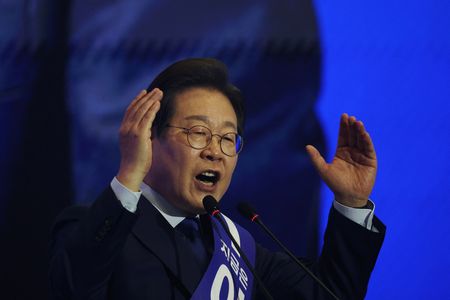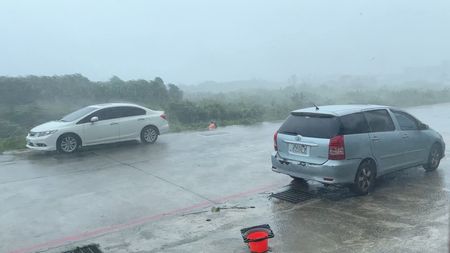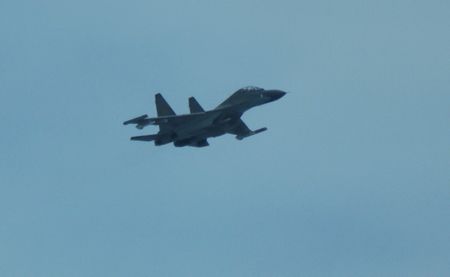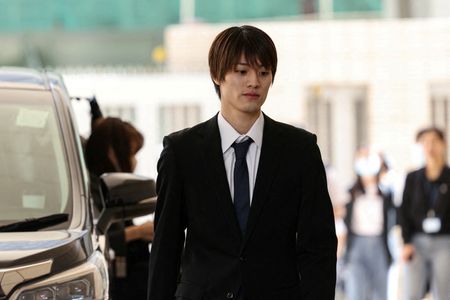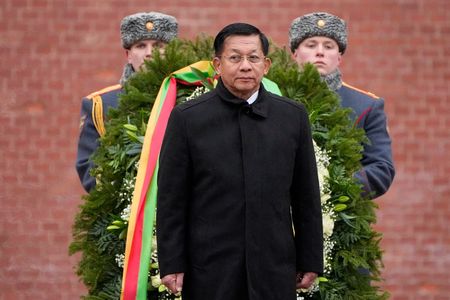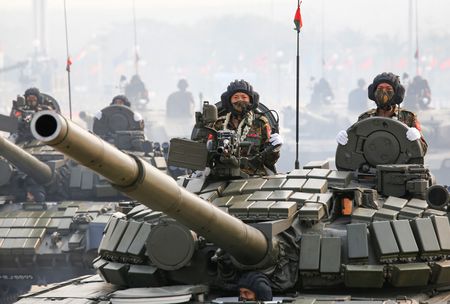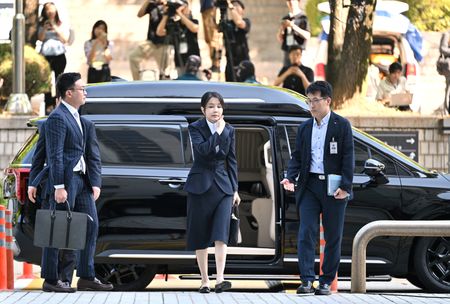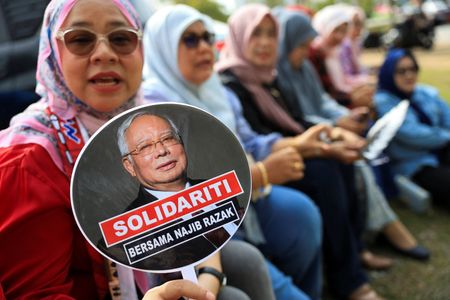By Joyce Lee and Ju-min Park
SEOUL (Reuters) -South Korea’s top court cast doubt on Thursday on frontrunner Lee Jae-myung’s eligibility to run for the presidency, while the resignations of the prime minister and finance minister shook the interim government in place since December’s martial law.
Education Minister Lee Ju-ho took over as acting president, the third since the martial law decree, barely a month before a snap election. The vote was called after the Constitutional Court removed former President Yoon Suk Yeol from office over his brief martial law attempt.
The election race was rocked by a Supreme Court ruling that could threaten the candidacy of former opposition party leader Lee Jae-myung, who has dominated all opinion polls.
The court overturned an earlier ruling that had cleared Lee, saying he had violated election law by publicly making “false statements” during his 2022 presidential bid. It sent the case back to the appeals court and ordered it to issue a sentence, which could bar Lee from running for office for up to five years.
South Korea has been led by a rotating cast of acting presidents since Yoon’s impeachment on December 14, hampering efforts to steer Asia’s fourth-largest economy through the choppy waters of U.S. tariffs.
Prime Minister Han Duck-soo, who has been serving as acting president, stepped down on Thursday ahead of an expected entry into the presidential race. Han is expected to declare his presidential run on Friday.
Han, 75, had initially lasted less than two weeks in the acting post and was himself impeached and suspended on December 27 after clashing with the opposition-led parliament by refusing to appoint three more justices to the Constitutional Court.
However, the court reinstated Han on March 24.
Finance Minister Choi Sang-mok had assumed the position of acting president while the cases of Yoon and Han were before the Constitutional Court.
Choi had been due to take over again after Han stepped down on Thursday but then abruptly resigned himself after parliament restarted impeachment proceedings against him for decisions he had made as acting president.
Choi, who has played a leading role in the response to U.S. tariffs, apologised in a statement for not being able to continue his work while the country faces severe economic conditions at home and abroad.
Education Minister Lee, the next in line by law to serve as the country’s acting president, took the helm at midnight on Thursday. He ordered the military to stay on alert and vowed to run the government in a stable manner, local media reported.
Lee, 64, an economist and professor, also called on officials to support a fair presidential election on June 3.
PRESIDENTIAL BID IN DOUBT
Thursday’s Supreme Court ruling could undermine Lee Jae-myung’s credibility to be on the ballot and further deepen divisions in South Korea after months of political turmoil.
“The defendant’s remarks… were judged to be false statements on matters important enough to ruin voters’ accurate judgement on the defendant’s eligibility for public office,” said Chief Justice Jo Hee-de in the verdict.
While the Supreme Court moved unusually fast to consider Lee’s election law case, it gave no deadline for the appeals court, which usually takes months to revisit rulings. It was unclear if a decision would come before the June 3 election.
Lee Jae-myung, who has denied any wrongdoing, said he had not expected the verdict to play out this way but pledged to follow the will of the people.
Shin Yul, a political science professor at Myongji University, said the ruling was a blow to Lee and the liberal-leaning Democratic Party.
“The appeals court will decide whether to disqualify him to run for office or not, but the Supreme Court in effect found him guilty… Moderate voters, 10% of the total, will be swayed by this news,” he said.
A Gallup Korea survey on April 25 showed that Lee Jae-myung was favourite to win next month’s election with 38%, while former head of the conservative People Power Party (PPP) Han Dong-hoon had 8% and Han Duck-soo was on 6%.
Lee Jae-myung is embroiled in several criminal trials, but the election law case has been in the spotlight because if the appeals court finalises a guilty verdict in line with the Supreme Court’s decision, Lee would be barred from contesting elections for at least five years.
The Supreme Court, which can take a year or more to consider a case, made its decision on Thursday only about a month after prosecutors appealed the earlier court’s decision to clear Lee.
The Democratic Party on Thursday criticised the top court’s ruling and a spokesperson told reporters there was no chance of replacing Lee as a candidate.
($1 = 1,423.7500 won)
(Reporting by Joyce Lee, Ju-min Park, Cynthia Kim, and Josh Smith;Editing by Ed Davies, Michael Perry, Saad Sayeed, Kate Mayberry and Gareth Jones)

